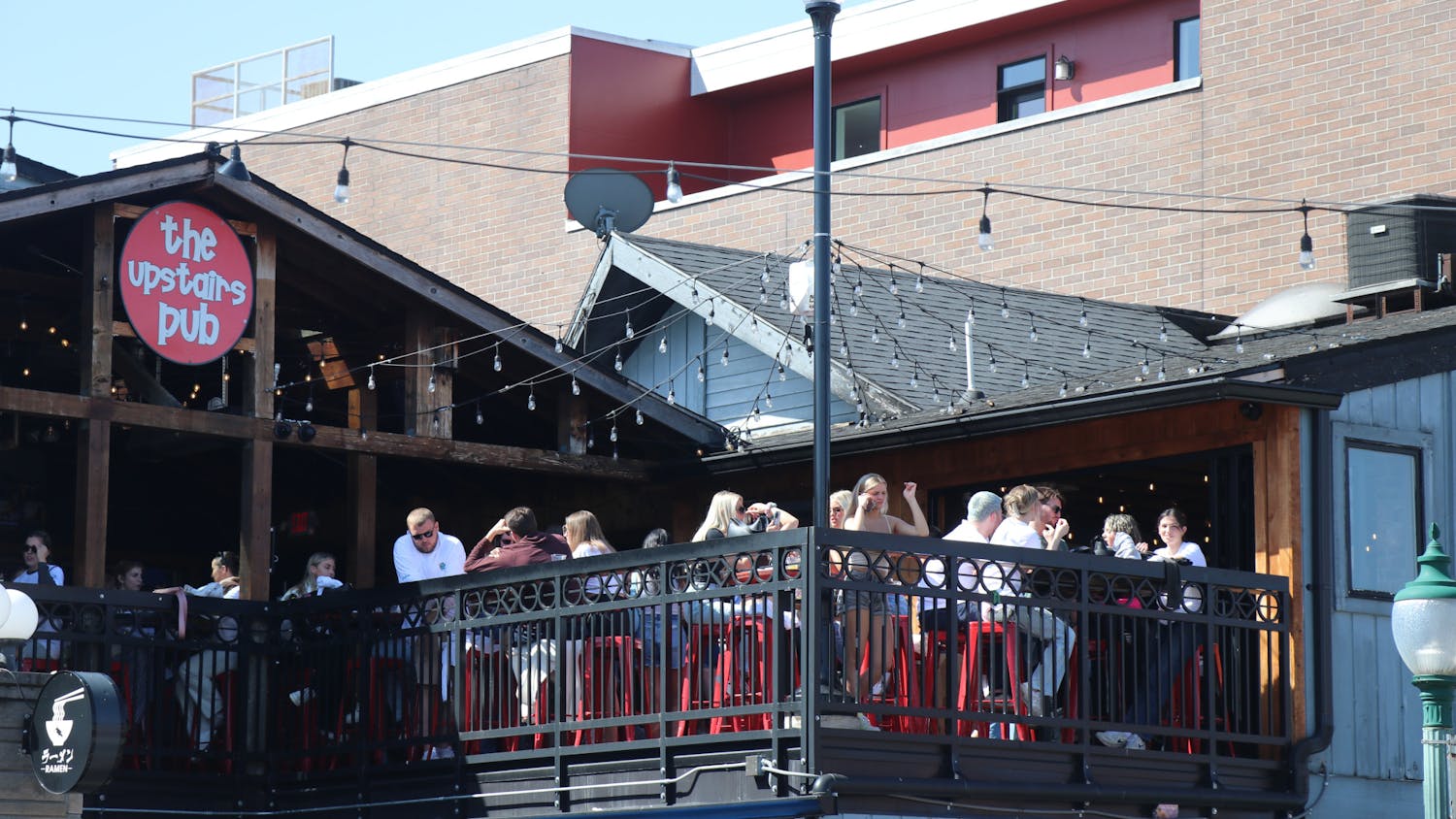BAGHDAD, Iraq -- Suicide bombers inflicted another day of mayhem in the capital Thursday, killing at least 31 people in two attacks about a minute apart that targeted Iraqi police and Interior Ministry commandos. The carnage left nearly 200 people dead in just two days.\nA dozen bombings during a nine-hour spate of terror Wednesday killed at least 167 people and wounded nearly 600 -- Baghdad's worst day of bloodshed since the U.S.-led invasion in March 2003.\nU.S. officials blamed the bombing onslaught on efforts by the Sunni Arab-dominated insurgency to answer the Iraqi army's successful offensive in the northern city of Tal Afar and to undermine the Oct. 15 referendum on Iraq's new constitution.\n"These spikes of violence are predictable around certain critical events that highlight the progress of democracy," said Maj. Gen. Rick Lynch, the chief American military spokesman.\n"Remember, democracy equals failure for the insurgency. So there has to be heightened awareness now as we work our way toward the referendum. That's power; that's movement toward democracy."\nAl-Qaida in Iraq, headed by Jordanian terrorist Abu Musab al-Zarqawi, claimed responsibility for the bombing campaign launched after an Iraqi-U.S. force of 8,500 soldiers stormed Tal Afar, an insurgent bastion, this week.\nAl-Zarqawi then purportedly declared "all-out war" on Shiite Muslims, Iraqi troops and the government in what the United States has called a desperate propaganda campaign to derail the political process.\nLeaders of the Sunni Arab minority in Iraq have vowed to defeat nthe constitution, which they claim favors the Shiite majority and the Kurds.\nLynch said the joint force killed 145 insurgents and captured 361 in the second operation in a year to rid Tal Afar of militants, including foreign fighters crossing from Syria.\nNow, he said, U.S. forces, along with the Iraqis, were fighting to regain control of the Syrian border, near the western insurgent stronghold of Qaim well to the south of Tal Afar.\n"The focus is ... to restore control of the border, and in this particular case, the border with Syria," he said. "We believe that the terrorists and foreign fighters are entering Iraq across the Syrian border, down the Euphrates River Valley into Baghdad."\nRecent violence only served to deepen the misery in Baghdad, where streets were noticeably quieter Thursday -- deserted in the southern Dora district where the latest bombings were concentrated.\nU.S. and Iraqi forces using loudspeakers roamed the district warning residents to stay indoors because five more suicide car bombers were believed to be in the area.\nMany victims of Wednesday's attacks were killed shortly after dawn when a bomber lured day laborers to his small van with the promise of work, then detonated his explosives in the heavily Shiite Kazimiyah district.\nSome of the dead were taken for burial Thursday to the huge Shiite cemetery in the holy city of Najaf, 100 miles south of Baghdad.\n"We appeal to the government to punish those criminals immediately," said Ali Hamza, a victim's father, in tears.\nAs al-Qaida in Iraq intensified its bombing and propaganda campaign, the government hit back with threats.\n"We will not retreat or be silent. There will be no room for you (insurgents) in all of Iraq. We will chase you wherever you go," Defense Minister Sadoun al-Dulaimi, a Sunni, told reporters.\nIraqi authorities have taken pains in recent days to convince the population that the insurgency is overwhelmingly foreign, claiming, for example, that they arrested a Palestinian and a Libyan in the Kazimiyah attack. The bomber was a Syrian, the government said without detailing evidence.
Suicide attacks rock Baghdad
Al-Qaida claims responsibility for bombings, 31 lives
Get stories like this in your inbox
Subscribe



